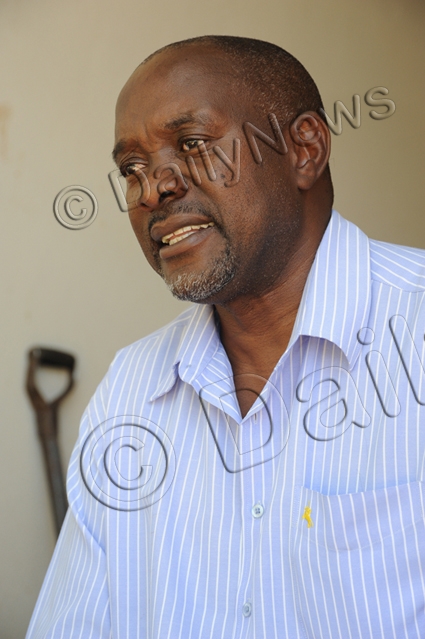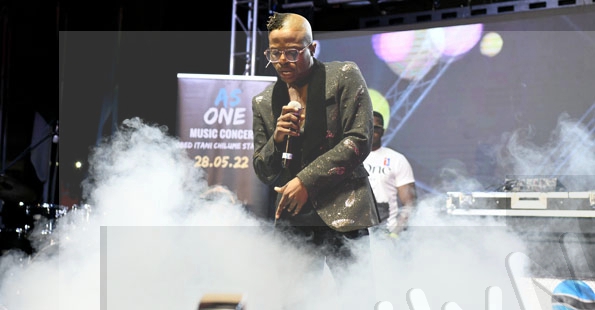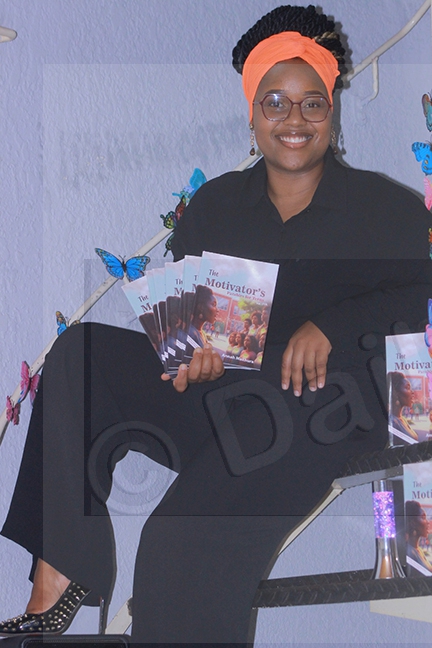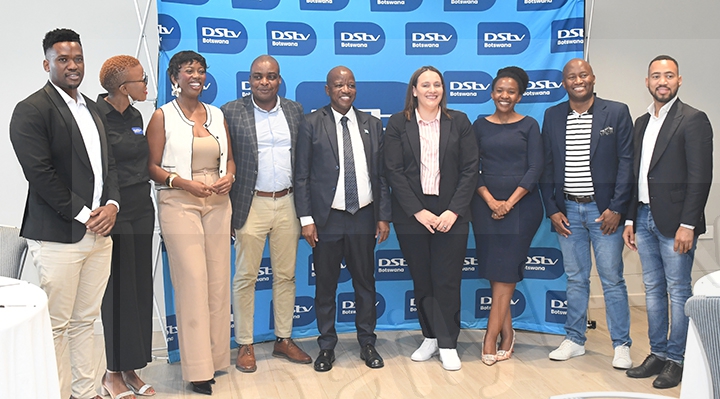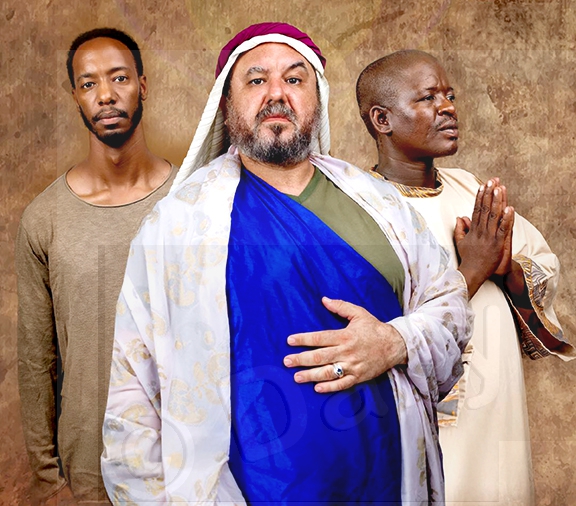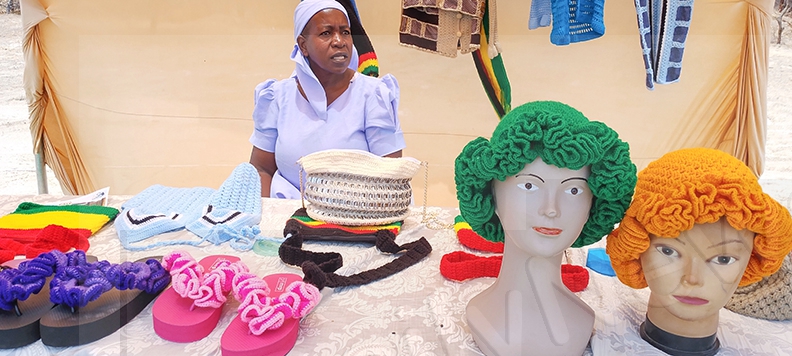FCC revives music entertainment
22 Mar 2017
Francistown City Council (FCC) has partnered with a local music promotion company, Street Horn to revive the northern city’s history as the country’s hub of music entertainment.
Francistown’s mayor, Sylvia Muzila announced during a media briefing recently that the two parties had signed a three-year partnership for an annual festival to be known as Francistown Jazz Festival geared towards promoting local artistes, culture and tourism, among others.
“We have availed the council’s old stadium, which is usually idle, for use during the envisaged festivals,” Muzila said, adding that the first of such festivals was billed for April 8 at Old Francistown Stadium, where jazz and oldies music would be premiered abundantly.
“All the council committees have endorsed the partnership as it is in line with the city’s Vision 2022 objectives of making it a vibrant and attractive destination,” she said, adding that the partnership was also in line with government’s policy of public private partnerships.
The Mayor said her council was also in partnership with a number of private sector entities in areas that included the council abattoir and the market place, among others.
Adding his voice, the town clerk, Mompati Seleka said the city played a facilitator role and that their partnership with Street Horn was concessionary in that a lot of requirements in the use of the stadium had been waived.
“We are using the jazz festival to market the city of Francistown, and we want to connect investors with big events happening in the city,” Seleka added.
The idea to promote local music, dance and arts will go a long way in disassociating the northern city with the haunting legend that says ‘a city without a vibrant entertainment is as good as dead’.
In the early 1990s, the country’s second city sank into musical oblivion when some of the renowned local music promoters headed down south in search of glory in the nation’s capital, Gaborone.
Regrettably, when the few who remained behind tried to fill the void left by the departed promoters, they were nowhere near their match, and Francistown was never the same.
Explaining the idea behind the festival, Street Horn’s Soares Katumbela noted that Botswana lacked great tourist and entertainment activities similar to the annual Cape Town Jazz Festival, Standard Bank Jazz Festival and many others.
“All these festivals are major international attraction activities in South Africa, and a good number of Batswana trek to these activities due to a lack of quality entertainment in Botswana, particularly for adults,” Katumbela said.
In addition, he highlighted that Francistowners always travelled to Gaborone to attend jazz events like the annual Gaborone International Music & Culture week and the Mascom Live Sessions.
However, the music promoter asserted that the envisaged Francistown Jazz Festival was a perfect event for the town and its surroundings as it would present endless commercial possibilities.
He explained that having hosted jazz festivals for many years, Street Horn had a good reputation for reliability, which was enough guarantee for an incident free festival.
Francistown’s fame as the home of jazz music can be linked to the culture of the people and the venues that dominated the live music scene back in the days, making the Ghetto a melting pot of cultures.
In particular, the diverse cultures were rooted in migrant musicians who had fled neighbouring countries due to the liberation wars that were common in those countries at the time.
Most of the migrants were political activists who used music as a form of protest against their oppressors and the diverse cultures and musical genres they brought turned the Ghetto into the musical city it became at the time.
And the result was a medley of music groups that created vibrancy and a buzz found nowhere else in the country, and every time names of night clubs such as New Yorker, Ritzmar, and a number of local and foreign bands are mentioned, one becomes extremely nostalgic.
However, when the economic fortunes of the city dwindled, so did the music activity, and even the mining boom ignited by the re-opening of the gold and copper mines at the turn of the new millennium did very little to assuage the situation.
Notably, this is likely to change with the city’s Vision 2022 promising to turn the Ghetto into a vibrant city and a destination of choice for investors through diversifying product offering.
With government funding not enough, the city is trying local policies that can bring enough revenues to the council coffers to provide opportunities for musicians and the entertainment industry as a whole.
The council’s model of economic development is now being channeled towards music-themed tourism, which involves attracting visitors to the city’s famous landmarks and music festivals that will become a permanent feature in the city’s calendar.
Music lovers will in the process contribute to the city’s development by spending in the hospitality industry, restaurants and the retail sector, among others, thereby boosting the local economy.
The idea will also give local artistes and small, medium and micro businesses the opportunity to tap into the economic boom created by such festivals.
The highlights of the festival will include renowned South African jazz legend, Jonas Gwangwa, who will be celebrating 80 years of age, Ringo Madlingozi, Shanti Lo, Amantle Brown, Mshilo, It has to be Jazz, Bana Bana Ba Ntogwa, who will be performing live, DJ Papi Jazz, Sereetsi & The Natives, and Lister Boleseng.
The programme will also include a workshop for musicians by It has to be Jazz group, and tickets for the festival are sold at The Voice office in Francistown, Webtickets outlets, and Street Horn Music Café in Gaborone (Molapo Crossing). ENDS
Source : BOPA
Author : Puso Kedidimetse
Location : FRANCISTOWN
Event : Press Conference
Date : 22 Mar 2017




